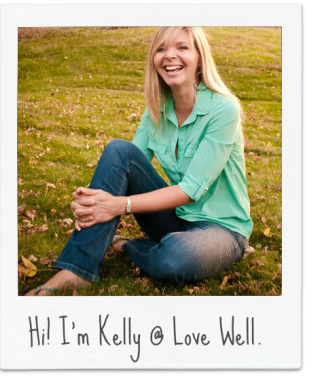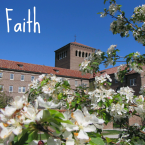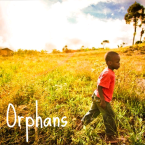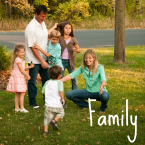It hit me afresh one Sunday in December, as we sang one of my favorite Christmas hymns, “Oh Come, Oh Come, Emmanuel.”
Advent literally means “the arrival.” And the people of Israel? They had waited for centuries for the Messiah to come. It’s easy for me to gloss over this fact, because I know how the story ends. But for a few moments that morning, I let myself ponder the wait of the faithful.
I especially thought about the Israelites who waited the 400 years immediately prior to Jesus’ birth. Those centuries were marked by God’s silence. Four hundred years of nothing. No reassurance. No fresh encouragement. No reiteration of ancient promises. Just a void.
For 400 years, generations waited and hoped and believed and prayed and never saw the fulfillment of the Promised One.
That staggered me.
Suddenly, the bittersweet melody of the ancient hymn fit the lyrics.
“Rejoice! Rejoice! Emmanuel will come to thee, O Israel!”
It’s not a song of celebration, to mark the arrival of the Messiah. It’s a song of yearning, a song of trust, a song of waiting.
And ultimately, a song of hope.
In my experience, waiting produces one of two fruits in my life. Either I grow helpless as the days tick by and my prayers aren’t answered – and along with helpless, comes a side crop of bitterness, resignation and unbelief – or I dig in my heals and grow hopeful.
I’ve written before about the difference between the Western definition of hope and the Biblical definition of hope. Our culture uses hope as a synonym for wish. “Oh, I hope I can find one more box of Thin Mint cookies this year.” “I hope we get to live in that neighborhood someday.” “I hope my kids won’t catch the stomach flu going around.”
But that’s not God’s hope. The Greek word most often translated as “hope” in the New Testament is elpis or elpo. Strong’s Greek Dictionary defines it as “to anticipate, usually with pleasure; an expectation or confidence."
In other words, it’s not a wish. It’s a certainty. Biblical hope is as certain as spring, as certain as the birth of this baby who is currently kick-boxing my ribcage. It might not be happening right now, and even the symptoms might be far off. But it is coming.
And that kind of hope? That almost always produces a side crop of joy.
I read this in Colossians this morning:
We pray that you'll have the strength to stick it out over the long haul—not the grim strength of gritting your teeth but the glory-strength God gives. It is strength that endures the unendurable and spills over into joy, thanking the Father who makes us strong enough to take part in everything bright and beautiful that he has for us.And a few verses before, Paul says this about the believers in Colosse:
The lines of purpose in your lives never grow slack, tightly tied as they are to your future in heaven, kept taut by hope.Don’t you love that? What an awesome word picture. With all my heart, I want to wait with a unyielding and joyful hope in the One who goes before me. I want the lines of my faith to be taut and strong, tied as they are to the hope in Jesus.
So, as the hymn says, “Rejoice!” The long slog of waiting might be dark with uncertainty and full of moments of doubt.
But we are not without hope. And that makes all the difference.





















You bless me so much with your words. Thank you for this. I hope, for our meeting one day. :) To hug your neck and smile.
ReplyDeletexoxo
Arianne
I love this post.
ReplyDeleteTwo springs ago I was unknowingly at the end of a very long wait for children (8 years). The story of Abram and Sarai gave me hope. Quite aside from being about infertility it also reminded me that God can fulfill his promises even when we think that we've waited so long that there is no longer any point to being hopeful.
Expectation. Joy. Waiting.
ReplyDeleteYou know I'm sitting here nodding.
Slog. I'm incorporating that into my vocabulary NOW.
Nice. Usually I can't stand The Message (always seems a bit cheesy), but that second passage really did paint a nice visual picture.
ReplyDeleteI love this. Hope is my word for the year. Thanks.
ReplyDeleteSo interesting! I didn't know this about hope.
ReplyDeleteThanks for this. Some needed words for us right now.
ReplyDeleteamen. :)
ReplyDelete